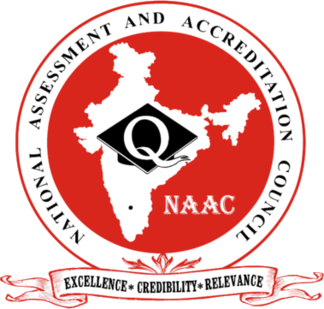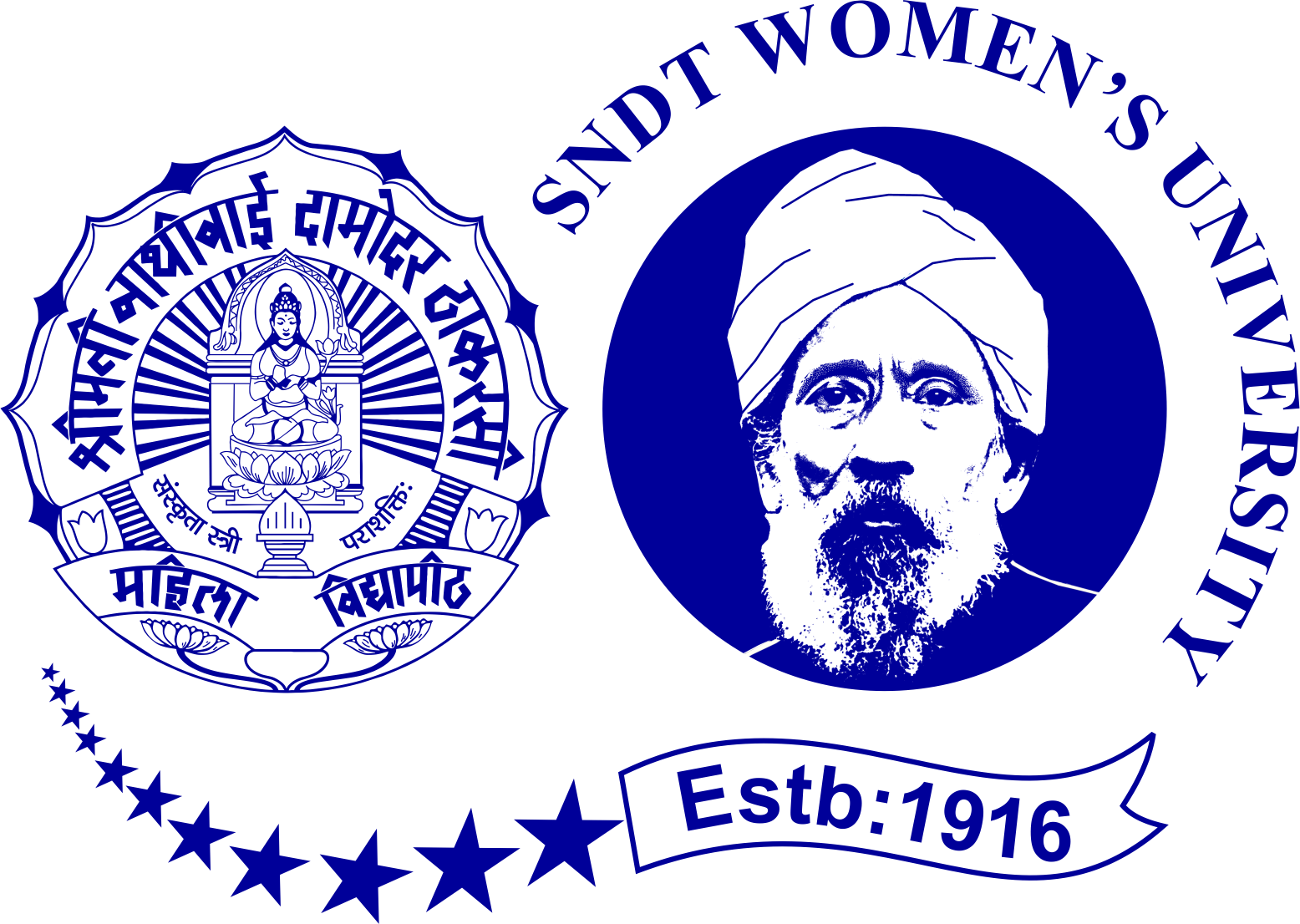Course Outcomes (Sociology)
B.A. Sociology
Programme Specific Outcomes
Upon successful completion of the program the graduate students would be able to:
- Understand basic concepts and theoretical perspectives in Sociology and how they are used in sociological explanation of social behavior.
- Understand how to collect, analyze and interpret empirical evidence in sociological research.
- Gain familiarity with and develop an understanding of core substantive areas of sociological inquiry.
- Express sociological ideas clearly and coherently both in writing and in oral presentations.
The course aims at acquainting the students with a number of sociological aspects.
- It helps students to understand sociology, its background of emergence as a discipline in the west and India, gives an analytical and cognitive approach to acquaint with classical, modern and Indian sociological thinkers, helps to acquaint the students with the conceptual framework of Indian social system, dynamics of Indian social institutions, provides the knowledge of sociological research methods, provides a theoretical and practical knowledge on social change and development, its paths, agencies and hurdles.
- Through this course students understand the fundamentals and the emergence of various social and social welfare measures from the sociological perspectives.
- This course is helpful for the student to understand the meaning and ethos of science, its respectable sibling i.e. technology, its impacts on society, to familiarize with the processes like urbanization, industrialization, modernization, westernization, its impact on society and environment.
Program outcomes of BA
- Understand and appreciate the role of interdisciplinary sciences in the development and well- being of individuals, families and communities. Understand the importance of food and health to enhance the quality of life of people.
- Acquire professional and entrepreneurial skills for economic empowerment of self in particular, and community in general.
- Develop skills in food and nutrition and use it in the field of personal and community health.
- Take food science from the laboratory to the people.
B.A PART I
Credit: 04 Lectures: 60 Marks: 100
SEMESTER I
course II
Foundation of sociology
Course Objectives
- To get acquainted with the discipline of sociology.
- To understand the basic concepts in society.
Course Outcome:
Students will:
- Study of which is a special prerogative of Sociology. The course content will expose students to classical as well as contemporary themes in the field.
- Students would be able to identify the key elements of kinship, family, and marriage and be able to appreciate their significance in ordinary as well as special circumstances in diverse societies.
B.A PART I
Credit: 04 Lectures: 60 Marks: 100
SEMESTER I
Sociology of Indian Society
Course Objectives
- To understand the basic knowledge of Indian Society.
- To know the comprehensive profile of Indian society
Course Outcome:
Students will
- Articulate an understanding of how culture and social structure operate. Students will develop understanding of the social and cultural processes and structures that inform social interact.
- Can demonstrate an understanding of the diverse forms and sources of social stratification, inequality and difference that exist in society.
B.A PART I
SEMESTER II
Credit: 04 Lectures: 60 Marks: 100
Course Objectives
Social Problems in India III
- To understand social problems in contemporary Indian society in the context of the sociological theory, knowledge, concepts and perspectives.
- To understand l social problems that is designed to help alleviate the negative consequences of social problems.
- To explain how social problems interact and reacts with the society and whether the problem is evaluated on the cause and effect patterns.
Course Outcome:
Students will
- This paper will develop theoretical understanding to study the individual behavior and social problems.
- Students get acquainted about the various social problems like child labour and abuse, unemployment, corruption, terrorism, casteism and communalism and gender discrimination.
- Students will be able to demonstrate an understanding of how social class affects individual life chances. Students will be able to demonstrate an understanding of social structure and how it shapes and influences social interactions.
B.A PART I
SEMESTER II
Credit: 04 Lectures: 60 Marks: 100
Introduction to sociology IV
Course Objectives
- To demonstrate understanding of fundamental sociological concept about Indian society.
- To develop Understanding the structure of social culture and society.
- To help them with multiple types of social institutions (family/marriage, education, religion, health, leisure, criminal justice and political systems, and economic systems) and their evolution over time.
Course Outcome:
Students will:
- Get to know the nature of Indian society.
- Understand the structure of social culture and socialization.
- Understand the function of social institutions also introduce the basic concepts of sociology, subject matter and importance of sociology and origin and development of sociology.
.
PART II B.A
Credit: 04 Lectures: 60 Marks: 100
Semester III
Rural Society
Course Objectives:
- To develop greater understanding of the rural society and the interaction of rural people.
- Attempt will be made to understand the rural development issues.
- To introduced Panchyat Raj System.
- To develop the understanding about various government schemes and developmental programme prevalent in Indian society.
- To develop conceptual understanding about poverty and unemployment and studied about the two main poverty abolishment programs in rural India like MNREGA and IRDP
Course Outcome:
Students will
- Understand the profile of rural community.
- Introduce the basic concepts of Rural Community and Rural Development.
- Understand Conceptual classification of Panchyat Raj System.
- Create awareness among government schemes in rural developments.
- Students develop conceptual understanding about poverty and unemployment and studied about the two main poverty abolishment programs in rural India like MNREGA and IRDP.
A. Part – II Semester III
Course V / AC III
Social change and development in India
Credit: 04 Lectures: 60 Marks: 100
Objectives:
To familiarize the Concepts of development and change.
To understand the processes of social change and development in Indian Society.
Course Outcome:
- Understand meanings and significance of social transformation
- Develop ability to critically engage with contemporary changes
- Facilitate theoretical thinking about transformation
To Provide an Introduction of Social Structure & Social Change. To Provide the Student the basic knowledge of Social Structure & Change of Society. To Familiarize the Students about the Major Segment in Social life
PART II B.A
Credit: 04 Lectures: 60 Marks: 100
Semester IV
Course Objectives:
Urban Society: Problems & Prospects
- To understand and analyze approaches to study urban development.
- To develop an understanding about trends of urbanization in India and impact of urbanization on Indian society.
- To describe different problems in urban areas.
Course Outcome:
Students will
- Be able to explain the main points of the two key theoretical approaches to urban development and apply them to different aspects of cities.
- be able to explain how major historical, economic, and political trends have affected the growth and development of Indian
- be able to understanddifferent problems in urban areas.
B.A. Part – II
Semester- IV
Course VII / AC IV
Women’s Issues in India
Credits: 4 Lectures: 60 Marks: 100
Objectives:
– To be aware with women issues
– To the emerging issues and debates relating women and development.
Course Outcome:
- To understand the issues and challenges faced by women, in a holistic manner through discussions, research work, theory building and information dissemination.
- To introduce aspects of gender studies to students coming from different streams of knowledge in a structured manner.
- To discuss the issues of gender discrimination with the participants in order to develop a knowledge system and pedagogy free from all sorts of gender stereotype.
- To make participants understand the nuances of gender justice and its significance so that they can spread awareness among students against systemic gender discrimination embedded in our culture.
Learning Outcomes:
- This course will be helpful in minimizing gender bias among teachers, scholars and academicians; whereby students will also develop an equitable and just thinking towards women.
- A gender bias free teaching-learning process can be instrumental in bringing about positive social change towards an equal opportunities society.
- A faculty member who values, practices and espouses gender eqauity would definitely inspire his/her students to make their career decisions in an unbiased and confident manner leading to judicious presence of males and females in all areas of study and profession.
Part III B.A
Credit: 04 Lectures: 60 Marks: 100
Semester V
Course Objectives
Industrial society
- In this course the aim is to make students aware about the sociology of and industrial society.
- To Provide the Students Sociological understanding industrial organization and it’s functioning.
- To acquaint the student with dynamics of industrial relation and management system.
- To Understand the Problems faced by Labour in Organized and Unorganized Sector
Course Outcome:
Students will
- Acquaintance with the structure of industry and industrial society.
- Introduction to the industrial organization and it’s functioning.
- Understand the industrial management system.
- able to understand the Problems faced by Labour in Organized and Unorganized Sector.
Sociology of Crime and Deviance
Credit: 04 Lectures: 60 Marks: 100
Semester V
Course Objectives
- The study of the theories of criminology.
- To examine the criminal behavior in society.
- To demonstrate the ability to think critically and analytically.
- To study a variety of crime.
Course Outcomes
Student’s will
- Students will do readings on the various theories in criminology to understand why people commit crimes (exams, class discussion and term paper).
- Students will be able to identify the crime and more accurately understand crime in the society (exams, class discussion and term paper).
- Students will demonstrate critical and analytical thinking through class assignments
- Students will select and write a paper describing a particular crime
B.A. Part – III
Semester- V
Course IX / Code No. – 545911
CLASSICAL SOCIOLOGICAL THEORISTS
Course Objectives
– To understand the development of Sociological thoughts.
– To know the contribution of classical sociological theorist in sociology.
– To gain the knowledge of classical sociological theories.
Course Outcome:
- Introducing students to the classical sociologist and to make them understand about the major contribution of classical sociologists.
- To make familiarize with the theoretical foundations of Sociology on which edifice of modern Sociological theories are set up and to develop critical thinking, analytical ability to interpret the social scenario around them.
- To familiarize students about foundational theories and fundamental concepts of sociology.
Learning Outcomes: Students would be able to understand fundamental concepts of the sociology and the contribution of classical sociologists. This course would be helpful to provide foundational ideas of sociology. This course also helps to provide the theoretical as well as methodological inputs to the learners. This course enriches the sociological knowledge of the students
B.A. Part – III
Semester- V
Course X / Code No. – 546011
Social Anthropology
Credits: 4 Lectures: 60 Marks: 100
Objectives:
– To understand the growth of Social Anthropology.
– To know the comprehensive life of primitive society.
Course Outcomes:
1) Introduction to basic concept of social anthropology.
2) To orient to the students about the relationships between sociology and social anthropology
3) To introduce the social anthropology to the students of sociology
Learning Outcomes:
Students would be able to understand the relationship between sociology and social anthropology. This course would be supported to understand the anthropological perspectives, methods and basic concepts. This anthropological knowledge would help and support to the students of sociology.
Part III B.A
Credits: 4 Lectures: 60 Marks: 100
Semester VI
Sociology of Marginalized Groups
Course Objectives
- To create the ability to participate in efforts undertaken to address inequalities.
- To create empathy towards the less privileged section of the society.
- This paper aims to develop the ability to critically view the caste, class and gender situation in India.
Course Outcomes
Student’s will
- Understand marginalized sections of Indian society.
- Students acquainted about affirmative action regarding backward caste and minorities on the basis of caste, class and gender.
- Impart the information about powerlessness in Indian democracy.
- Knowledge of social protests organized by the marginalized sections against injustices meted out to them.
Credits: 4 Lectures: 60 Marks: 100
Methodology in social science research:
Course Objectives
- To Introduce Students to the Nature of research, social research and Scientific Method in Social Science Research.
- To give Students the Understanding about comparative understanding of technique of social science research with quantitative and qualitative approach to Research.
- To enhance the Research interests and inculcate the Spirit of inquiry among students, who may be motivated to continue higher studies in research?
Course Outcomes:
Student’s will
- Understand the basic knowledge Research and Social Research.
- Students developed the comparative understanding of technique of research also received the knowledge of quantitative and qualitative approach to Research.
- Acquaintance with different types of research and issues in research.
B.A. Part – III
Semester- VI
Course XIII / Code No. – 646311
Contemporary Sociological Theorists
Credits: 4 Lectures: 60 Marks: 100
Objectives:
– To Identify and understand the important concepts & assumptions.
– To develop critical thinking and evaluation of Sociological theory.
Course Outcome:
1) To understand the contemporary trends in social theory.
2) To compare and contrast various theoretical viewpoints.
3) To get prepared for research in sociology.
Learning Outcomes:
Students would be able to understand fundamental concepts of the sociology and the contribution of contemporary sociologists. This course would be helpful to provide contemporary ideas of sociology. This course also helps to provide the theoretical as well as methodological inputs to the learners. This course enriches the sociological knowledge of the students
B.A. Part – III
Semester- V
Course XV / Code No. – 646511
Social Movements in India
Objectives:
To know the dynamics of social movements and their role in social transformation
To enable to look at social movements in a sociological perspective.
Course Outcome:
- To explain the important role of social movements in addressing social problems. • To describe the different types of social movements.
- Identify the contrasting sociological explanations for the development and success of social movements.
- Outline the stages of development and decline of social movements.
- Explain how social movements can change society
Learning Outcomes:
Students would be able to understand Social Movements and its importance and how it can change the society. This course would be helpful to explanations for success and failure of social movements. This course also helps understand types of social movements and different theories and stages of social movements.



